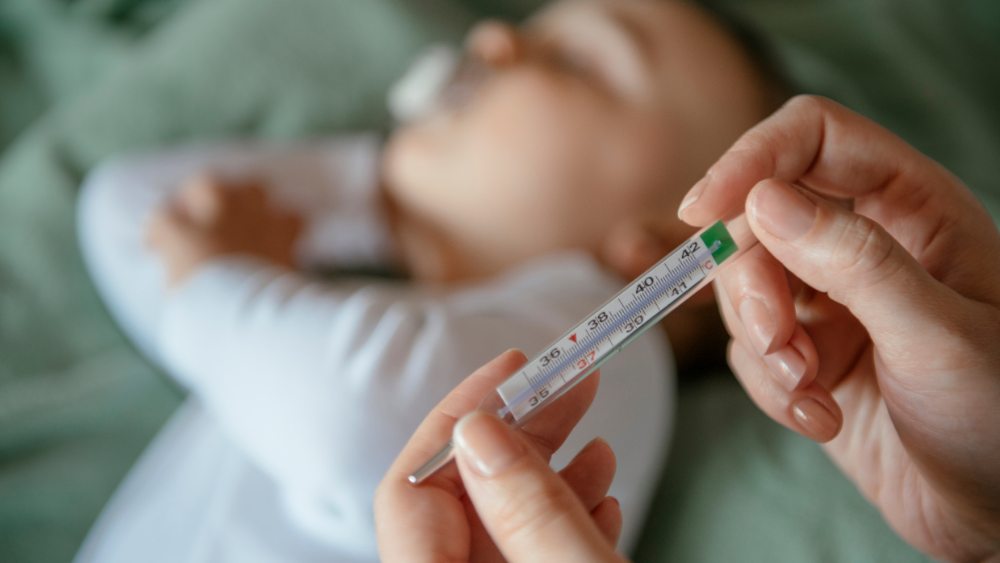When your little one spikes a fever, it can turn any parent’s night upside down. Somehow, these fevers always seem to show up after bedtime — when you’re half-asleep, rummaging for the thermometer, and trying not to panic. The good news? Understanding why this happens can help you stay calm and care for your baby with confidence.
Colds and flu are around all year, but winter is their favourite season. With families spending more time indoors and windows staying closed, germs spread more easily. The dry, cold air can also make it harder for our bodies to fend off infections.
Babies, with their still-developing immune systems, are especially vulnerable — it’s completely normal for a baby to catch six to eight colds in their first year!
The Nighttime Fever Spike Explained
If your baby’s temperature seems to rise as the night goes on, you’re not imagining it. Our bodies follow natural rhythms that change throughout the day. At night, stress hormones like cortisol dip, while healing hormones like melatonin increase.
This shift activates the immune system, which works harder to fight off infections while we sleep. The result? A temporary rise in body temperature — or, in other words, a nighttime fever spike.
How to Take Your Baby’s Temperature Accurately
It’s instinctive to feel your baby’s forehead when they seem warm, but touch alone isn’t reliable. Room temperature, clothing, and blankets can all affect how their skin feels.
The most accurate way to check for fever is with a digital thermometer. Rectal thermometers are considered the most precise for babies and can easily be used during a diaper change. Forehead (temporal) thermometers are another great, non-invasive option that measure heat from the artery on your baby’s forehead.
Top tip: Avoid taking your baby’s temperature right after a bath or if they’ve just been bundled up — this can lead to inaccurate readings.
What Counts as a Fever and Why It Happens
A normal body temperature for a baby is around 37.5°C for newborns and 36.4°C for older children. If your thermometer reads 38°C or higher, your baby officially has a fever.
Fevers are most often caused by viral infections — the body’s natural way of fighting germs. They can also appear as a response to routine vaccinations, showing that your baby’s immune system is building protection. Occasionally, teething might cause a mild temperature increase too.
When to Call the Doctor
While fevers are usually harmless and part of the body’s defense system, there are times when medical advice is essential. Contact your healthcare provider if:
- Your baby is under two months old with a fever above 38°C
- The fever lasts longer than three days
- Your baby shows signs like ear pain, vomiting, or diarrhoea
- You notice fewer wet nappies or a dry mouth (signs of dehydration)
- There’s a rash, stiff neck, or breathing difficulty
Comfort When Your Baby Needs It Most
When your baby is uncomfortable and feverish, every parent just wants to help them feel better fast. Because when your little one is happy and healthy, the whole household breathes a sigh of relief.

